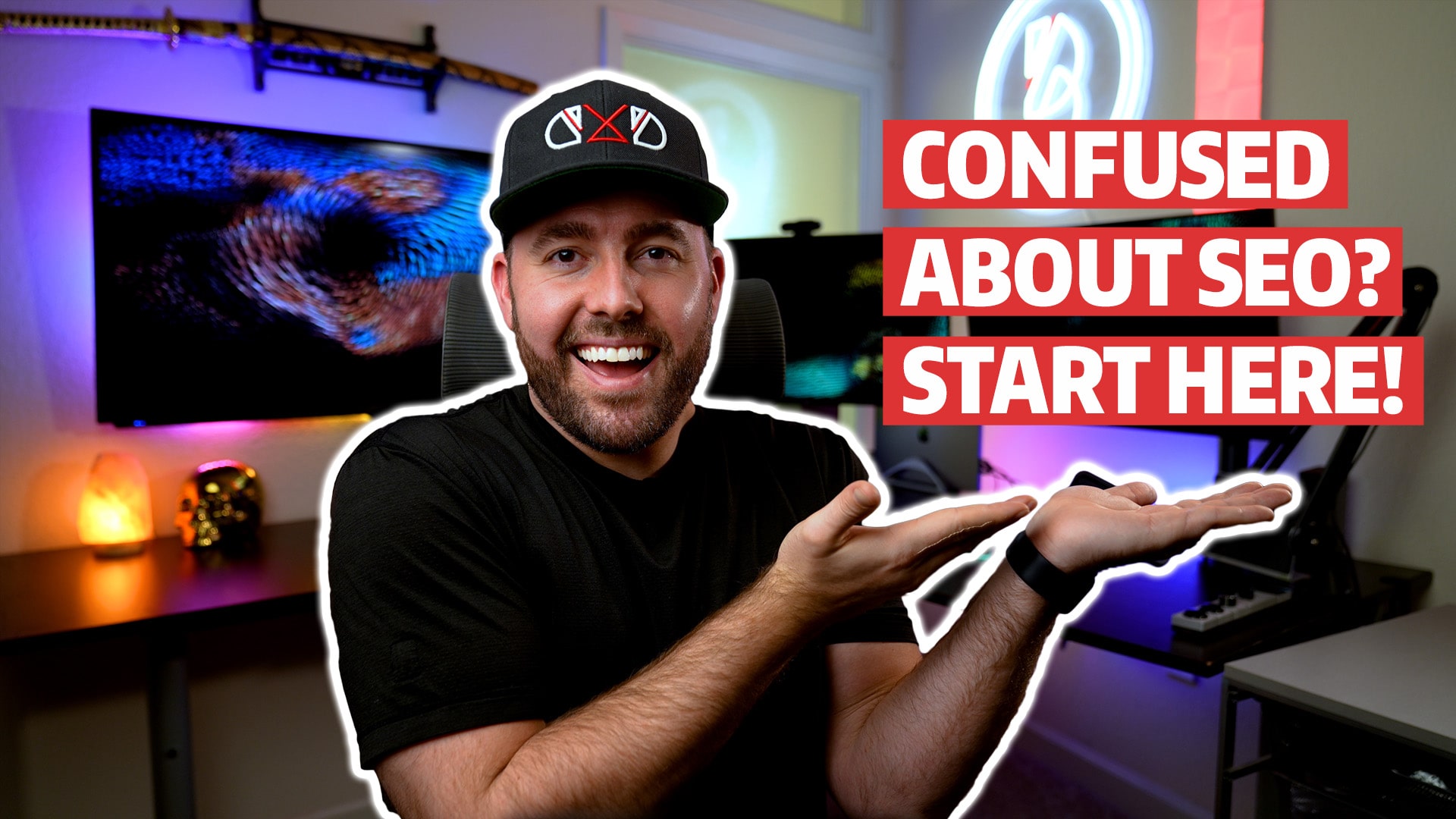SEO is one of those things that you can never truly learn enough about. It changes periodically, so yesterday’s techniques might not be the best ones anymore. That’s why there are dedicated career paths on getting the most out of SEO by itself!
But if you’re not an SEO expert, it’s not the end of the world. Just by doing the simple basics, you’ll be performing better than anyone who ignores it entirely.
So, we’re not going to leave you high and dry! Here are a few tips, straight from us, on how to get that SEO working in your favor!
Optimize Titles And Metadata
Titles and metadata are two considerable things that you can’t ignore when setting up your site, or posting your content. They’re the first thing a user sees when finding you on the search engine results.
Titles
Let’s not get too technical, as this is pretty cut and dry regarding its functionality to you, as a person looking for a high search engine ranking.
A title is the basic description of your content or page. You want it to be relevant. If the title is something like “Ice Cream Man” and then the page or content is about cars, your SEO will tank due to how search engines can identify the context.
A second thing to consider is, if you’re targeting a specific keyword in your content or page, try to throw it into the title as well. It helps search engines define the keyword you’re targeting better, and you’ll rank above those who don’t.
Metadata
Metadata is how you talk specifically to search engines. If you load up a search now and view the results, you’ll see metadata. The page title, the description, the date published.
When you’re working with a web page, and not content, search engines can’t simply pull the context of the website from the page. They can give it a good go, but it won’t be correct. It’s your job to set it right.
There are many CMS (Content Management Systems) that give you a user-friendly way to do this, but even with some simple HTML code in your header, it’s pretty easy to implement.
If you’re targeting a specific keyword, having that keyword in your meta title and description will help search engines establish what you represent and do. Don’t leave it on auto!
Keyword Research
It’s the easiest thing in the world to make your SEO keyword the most generic thing in the world. If you peddle brushes, you’d put “brushes”, right? Maybe. But consider this.
Why Research Keywords?
Think about everyone else who sells brushes and have set up their SEO. All of them will have used “brushes” as their keyword. This means your website will be combatting a ton of other websites for dominance.
It’s more than likely that the page one results for brushes have domain authority due to how long they’ve been operating, and how well they’ve been practicing SEO. Which could be years. You won’t have time for that, trust me!
What To Do
We’re not saying that just because a keyword is popular, you shouldn’t take it. But if you do, you will have a disgustingly difficult time trying to rank with it.
Instead, using “brushes” as an example keyword, try to find keywords with less competition. Something like “dog brushes” or “bronzer brush” is a better starting point to tackle. By getting specific with the keyword, you can dominate in a less populated area.
Plus, the benefit of this is once you’ve dominated a few keywords, like the ones above, you’re adding to your overall site authority. So, when you’re a few years down the line, and you’re ranking high on multiple keywords, you’ll be in a better position to fight for the number 1 spot for “brushes” on the first page!
Quality Matters
Gone are the days when you can fire out thousands of articles crammed with SEO keywords! SEO now punishes you for that. So, what do we do instead? Get yourself an extremely skilled content writer! (Hello!)
What Does Quality Mean In SEO?
There are numerous factors to consider now.
First, your content has to be relevant to your keyword. Obviously.
Second, readability. There’s no point in making content that people can’t be bothered reading.
Thirdly, the content has to have context. LSI (Latent Semantic indexing) keywords are now used to find more keywords related to your SEO keyword.
And lastly, backlinks. We’ll explain this later on!
How Do We Implement Quality?
There’s a lot more that goes into quality, but if that’s too much to take in, let me make it simple and clear for you.
Make sure the content you make is damn near perfect.
You’re going to need a writer, a top-tier one, to get anywhere. Badly written content is absolutely penalized if it looks like it’s been run over with a car.
If you’re gifted with a keyboard, then certainly, have a good go with it. Use tools like SEMRush to know what your content is missing, or lacking.
If you don’t have the gift, or you’re too busy, hire a writer who looks like they know what they’re doing. Good writers cost more, so make sure to check their reviews and samples before you spend your hard-earned cash!
Internal & External Links
Internal links are simply linking to relevant content within your website. External is linking to relevant content outside your website. Let’s dive in!
Internal Links
There are 2 main benefits of internal links, one technical, one for engagement. The technical reason is that internal links give the search engine crawlers a little helping hand on where to go next on your site.
If the content is about dog leashes and how they’re used, and there’s an internal list about the best dog collars to buy, the crawler will see that it’s relevant and index that as well. Simple and easy stuff! Even better if the internal link includes your keyword!
Internal links are primarily used for things like CTAs (Call To Action) or newsletter signup pages. They’re still valid though, don’t worry, just letting you know that they also count!
External Links
Now, why in the world would we link to other websites? They get your traffic, don’t they? It’s preposterous, I tell you!
Actually, it shows that you know what you’re talking about. In the same way you’d cite references in an academic paper, the quality of your sources makes an impact on your work. Same with SEO!
When the search engine bot crawls your content, and finds your external link, they’ll check the link to see if it’s relevant. If the link you’re using is top-tier regarding its quality, which they’ll know as they’ve probably already indexed it, you’ll raise your SEO authority.
Optimizing Your Images For SEO
You’d be surprised how much information you can tack onto your images. They’re not just pretty pictures anymore!
Metadata
Yep, we’re back at metadata again! Similar to how you’d implement metadata for a page, or content, you can do the same with an image.
Let’s take WordPress for example. Before uploading an image to the gallery, you’ll see a load of text boxes alongside it.
- Alternative Text – Voice to Text readers will use this to describe the image for your blind visitors.
- Title – Same as naming the page of the title, you name the image, so search engines can identify it properly.
- Caption – A tiny summary for your visitors to better understand the context of the image.
- Description – Same as the description of a page, helps search engines get a better context of the image and its relevancy in your content.
Same benefits as explained in the metadata section, except you can do this for a ton of images. Quantity is a great tool for you to optimize your content as a whole.
Geotagging
If the images you’re using have all been produced from you, or are from your regional location, geotagging carries a ton of benefits for local SEO. You can attract the visitors from around your area, not just on the entire web!
In the simplest of terms, if your images are relevant to your content or page, geotagging them lets search engines know the location of your operations. They can then show you to people near you.
Bear in mind, if you’re not targeting your local area, you may not have to go all in on this, as this is primarily a local SEO technique. But if you’ve got the time, why not go the extra mile?
Pixel Size
We wrote about this here, so we’ll summarize for you.
You want your images to be as small as possible, without sacrificing quality. Big images take longer to load, reducing your page speed. Bad page speed, bad SEO. Simple.
There are plenty of tools online to reduce the size of your images, but if you can do it manually, with software like Photoshop, you’ll be able to fine-tune the image to your liking. Aim for 500kb as the optimal file size!
Backlinks & Outbound Links
Links, links, more links. Can you tell they’re important? We’ve already explained outbound links, as they’re the same as external links, but for defining the terms for you, we’ll pretend you skipped over it!
Backlinks
In short, backlinks are links from other peoples websites to yours. It shows that they’ve chosen either your website, or your content, as an authoritative source.
Obviously, search engines love that. Starting out, one single backlink from a giant website can jump start you significantly, if the context is correct. When they look at the content and find your link in there, they’ll scoot on over and see what it’s all about!
And because someone so big linked to you, and the context and quality is outstanding, search engines will recognize this and shoot you up in the results. If you’ve got a network, this is what you use it for!
Outbound Links
The opposite of backlinks, these are links you’ve placed in your site and content. To go over it again, if the links are relevant and reputable, search engines will know that you know what you’re talking about, increasing your authority.
Make sure the content you’re linking to is something that search engines will fawn over. Because if it isn’t, they won’t look upon you so kindly.
Final Thoughts
Now you know the basic SEO tips & tricks! It’s quite a lot, isn’t it! This is why most companies have a dedicated SEO department, as there’s more to it than just this. But even the basics are time-consuming.
So if all of this is making you shudder, find yourself an SEO expert who already knows the best practices, tailored towards your particular situation. They’ll increase your traffic, and more traffic, means more profit.
Make the investment early, and you won’t regret a thing.

